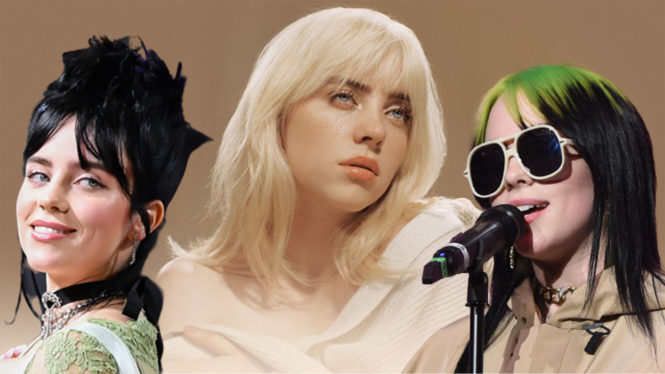Billie Eilish leads an historic chart in the U.K. as “What Was I Made For?” (via Interscope) logs its first week at No. 1.
In a battle of the Barbie tunes, “What Was I Made For?” beats Dua Lipa’s “Dance The Night” (Atlantic Records) to the tape, for Eilish’s second leader after 2020’s “No Time To Die,” the theme song for the James Bond film of the same name.
In doing so, the U.S. pop phenomenon ends the 10-week unbroken reign of Dave and Central Cee’s “Sprinter” (Live Yours/Neighbourhood), which tumbles 1-10.
A closer look at the chart’s upper ranks reveals a “major record,” in the words of the Official Charts Company, as female solo artists account for the entire top 6 — a feat never seen before in the chart’s 70-year history.
Those history-makers include Olivia Rodrigo’s “Vampire” (up 4-3 via Geffen), Taylor Swift’s “Cruel Summer” (up 7-4 via EMI), Peggy Gou’s “(It Goes Like) Nanana” (up 6-5 via XL Recordings) and Rodrigo’s “Bad Idea Right” (No. 6), which gives the U.S. pop star her sixth top 10 appearance and the week’s highest debut.
Indeed, the top 8 on the latest Official U.K. Singles Chart, published Aug. 18, is led by female artists, with “Barbie World” (Atlantic) by Nicki Minaj, Ice Spice and Aqua, down 5-7, and “Disconnect” (Polydor) by Becky Hill and Chase & Status lifting 9-8, for a new peak.
Of the top 40 on the latest chart, 24 feature, or are led by, female artists, the OCC reports.
“It’s great to see solo women artists make up the top six positions on the U.K. Official Singles Chart for the first time,” comments Dr Jo Twist OBE, chief executive of the BPI. “This increased representation is something we hope becomes commonplace rather than exceptional. For now it’s a milestone that we should celebrate, reflecting a year when the market has been dominated by women artists from the U.K. and globally representing multiple genres.”
The OCC has flicked through the history books to identify several Girl Power milestones. The Official Singles Chart of Nov. 9 1986 marked the first time female vocalists featured on each of the Top 5 singles: Berlin (No. 1), Kim Wilde (No. 2), The Bangles (No. 3), Mel & Kim (No. 4) and Swing Out Sister (No. 5).
Then, on Feb. 14, 1988, the top 3 was led by solo female artists for the first time — Kylie Minogue’s “I Should Be So Lucky,” Tiffany’s “I Think We’re Alone Now” and Taylor Dayne’s “Tell It To My Heart,” respectively.
A decade later, in 1998, saw the first all-female top 5, led by B*Witched’s “To You I Belong”.
Further reinforcing the year of Girl Power on the U.K. charts, the top 5 singles for 2023 is dominated by women, according to the charts compiler, a joint venture of the labels body BPI and retail association ERA. Miley Cyrus’s “Flowers,” which led the chart for 10 weeks between January and March, is the U.K.’s biggest single of the year so far.



